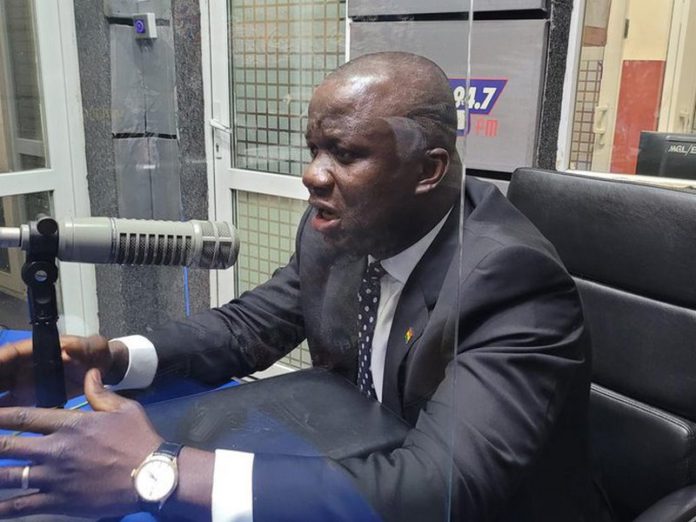
Minister of Lands and Natural Resources, Samuel Abu Jinapor, has said exposure to mercury by inhalation can result in damage to the nervous, digestive and immune systems.
In children, for instance, it could cause physical and mental disabilities, he said.
“Apart from contaminating water bodies and destroying aquatic life, high exposure to mercury by inhalation can result in damage to the nervous, digestive and immune system,” he said.
Mr Jinapor said this in Accra on Monday when President Nana Addo Dankwa Akufo-Addo commissioned 100 mercury-free gold processing machines to reduce and eliminate the use of mercury in small-scale mining activities.
The government, through the Minerals Commission, spent US$10 million to purchase the initial 100 machines, known as “gold kacha” last year, to facilitate the extraction of gold from ore.
Each machine costs $113,000 and the miner is supposed to pay it on a “work-and-pay” basis within a year.
The Lands Minister observed that small-scale miners relied on mercury to extract gold from the ore, a practice, he said, could have serious environmental and health impacts on the communities in which they operated.
Experts have warned of dire consequences if urgent action is not taken to eliminate the use of mercury in the small-scale mining industry.
It is for this reason that the world adopted the Minamata Convention on Mercury, which Ghana ratified on 23rd March 2017.
In compliance with the convention, state parties are to take measures to reduce, and, where feasible, eliminate the use of mercury in artisanal and small-scale mining.
Therefore, the introduction of the gold kacha is a step towards fulfilling Ghana’s obligation under the Minamata Convention, protecting the health and lives of small scale miners, and the natural environment.
And above all, it protects the population from the debilitating hazards of mercury, Mr Jinapor said.
The Mercury-free mineral processing machine for artisanal and small-scale miners was to ensure chemical-free mining, he said.
The technology has a high recovery rate (90 gravity recoverable gold) compared with the other methods that recover just 30-35 per cent of gold.
The adoption of the machine by Ghana is in compliance with the ratification of the Minamata Convention on Mercury in August 2017, to reduce and eliminate mercury use in the mining sector.
The Mercury-free technology was developed by the Commodity Monitor Limited, a Ghanaian-based company into trading, logistics and research along Africa’s commodity value chain, to ensure clean mining, and to position Ghana towards implementing the provisions of the Minamata Convention, which came into force in October 2013.
President Akufo-Addo presented one of the machines to Daakye Mining Enterprise, the Overall Best Small-Scale mining firm at the maiden edition of Small-Scale Mining Awards in 2021.
Mr Jinapor said the policies and strategies being implemented by the Ministry were to promote viable businesses for Ghanaians, who intended to work in the mining industry, whilst at the same time, protecting the environment.
This forms part of a broader vision of the Government to make Ghana the mining hub of Africa, where all mining related activities – exploration to downstream, production, innovation, research, would be centred.
The Minister reiterated the unflinching commitment of the government to persevere and build a viable, responsible, sustainable and environmentally-sound small scale mining sector to contribute meaningfully to economic growth.
